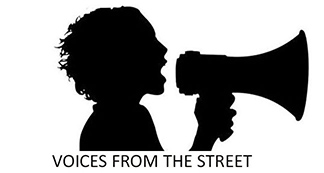Carol Goar
Nov 12 2008
One of the delegates brought along a sleeping bag. He stretched it out and fell asleep whenever the proceedings bored him. Another lost his train of thought at the microphone, apologized, and said he might have to go back to his shelter for his medications. A third, clean after years of cocaine use, urged others to follow her example, but added proudly that her addiction had never impaired her sexual performance.
Hart House, the cultural nucleus of the University of Toronto, has hosted some odd events in its 89-year history. But even by its bohemian standards, last week’s gathering of 120 homeless and formerly homeless people was extraordinary.
It was called Homeless2Home. That all-day session was organized by the Institute for Life Course and Aging at the university to tap into the knowledge of the “experts” on homelessness – people who have lived on the streets, battled addictions and mental illness, trudged from one emergency shelter to the next. Two rules prevailed: No labels and no judging.
The program was developed by a team of six formerly homeless people, guided by Julia Janes, the institute’s director of community outreach. “We’re looking for solutions today and we’re going to move them out into the community,” Janes promised.
Despite the imposing surroundings and their skepticism that anyone cared what they thought, the delegates contributed freely.
The day began with lessons from the street.
Ron Craven, who had been addicted to drugs and alcohol for 10 years before getting permanent housing, described how hard it was to adjust to life in an apartment. “At first, I hated it,” he said. “It felt claustrophobic. I couldn’t sleep for more than an hour at a time. Now I’m up to three or four hours.”
People need help to stay housed, not just get housed, he said. The temptation to return to the streets can be overpowering.
Chris Bedwell, a young man who admitted he’d made some bad choices, began by expressing his gratitude to the outreach worker who had saved him. Without her, he said, he’d probably be dead.
But he’d been placed in a senior’s residence. He hated the rules, the routines, the loneliness. “I’m lucky to have a place, but I don’t know if I can last,” he said.
Stacey Bowen, who admitted she had lied, cheated and connived to feed her crack addiction, said it is misguided to put people with substance-abuse problems in housing and hope it will work.
“I came so close, so many times, to losing my apartment,” she recounted. “I needed someone to pay my rent (out of her welfare cheque) before I could use the money for drugs.”
All three anecdotes challenged the notion that building affordable apartments – or subsidizing private ones – will break the cycle of homelessness.
For the next four hours the delegates broke into small groups to talk about the causes of homelessness: parental abuse, spousal violence, eviction, a workplace accident, mental illness, drug and alcohol dependence.
Their frank exchanges offered a glimpse into a world most Torontonians (even housing advocates) know little about. It is a place where social workers are resented and feared. It is a place where scamming the system is accepted; it is a matter of survival. It is a place where women fight desperately to hang onto their children. It is a place from which there often seems no escape.
At the end of the day, the delegates reconvened to pool their ideas. They ranged from rental assistance to anti-racism training for welfare caseworkers.
Now Janes and her six-member team will sift through all the suggestions and set priorities. Those will become the focus of a community action campaign.
It won’t be a typical lobbying blitz, with a statistic-laden research paper and a long list of recommendations. “We’ll probably use postcards,” Janes said.
It is too early to tell whether the unusual blend of academic inquiry and grassroots advocacy will produce policy changes.
But the day was a success in its own right. Barriers toppled. Stereotypes were cast aside. People left Hart House feeling that their voices mattered.
Credit: Toronto Star
